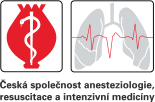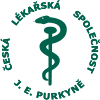Anest. intenziv. Med. 2012;23(1):28-32
Propofol vs. sevoflurane as anaesthetic maintenance agents in patients undergoing brain aneurysm coiling - randomized prospective studyAnaesthesiology - Original Paper
- 1 Department of Anaesthesia and Intensive care, Doncaster and Bassetlaw Hospitals NHS Foundation Trust, United Kingdom
- 2 Department of Anaesthesia and Intensive Care, Jessenius Medical Faculty Comenius University and University Medical Hospital in Martin, Slovakia
- 3 Department of Pathological Anatomy, Jessenius Medical Faculty Comenius University and University Medical Hospital in Martin, Slovakia
- 4 Department of Community Paediatric, Victoria Hospital, Glasgow, United Kingdom
Background:
Sevoflurane and propofol are commonly used anaesthetic agents for general anaesthesia. It has not been established which of them is more suitable for maintaining general anaesthesia during brain aneurysm treatment with endovascular coiling.
Objective:
We studied an effect of two anaesthetic maintenance agents on perioperative hemodynamic stability and the rate of complications in patients undergoing brain aneurysm coiling.
Design:
Prospective randomised trial.
Setting:
The tertiary level university hospital.
Patients:
110 patients with brain aneurysms treated by endovascular coiling under general anaesthesia.
Interventions:
Patients were randomised into 2 groups. The first group (S, 55 patients) received sevoflurane, the second group (P, 55 patients) received propofol infusion to maintain general anaesthesia. Induction into anaesthetic was the same in both groups.
Measurements and Main Results:
Group S patients were significantly more hemodynamically stable in the term of mean arterial pressure (p = 0.001). Recovery time was shorter in S group. Perioperative bradycardia occurred in the Group P more often (P = 0.039) meanwhile hypertension was more frequent in the Group S (P = 0.001).
Conclusions:
Our results suggest that sevoflurane can be better choice than propofol infusion for patients with brain aneurysms treated by endovascular coiling under general anaesthesia.
Keywords: brain aneurysm; coiling; general anaesthesia; sevoflurane; propofol
Received: July 21, 2011; Accepted: January 15, 2012; Published: February 1, 2012 Show citation
| ACS | AIP | APA | ASA | Harvard | Chicago | Chicago Notes | IEEE | ISO690 | MLA | NLM | Turabian | Vancouver |
References
- Alaraj, A., Wallace, A., Mander, N., Aletich, V., Charbel, F. T., Amin-Hanjani, S. Outcome following symptomatic cerebral vasospasm on presentation in aneurysmal subarachnoid hemorrhage: coiling vs. clipping. World Neurosurg., 2010, Jul, 74, 1, p. 138-142.
 Go to original source...
Go to original source...  Go to PubMed...
Go to PubMed... - Dupont, S. A., Wijdicks, E. F., Lanzino, G., Rabinstein, A. A. Aneurysmal subarachnoid hemorrhage: an overview for the practicing neurologist. Semin. Neurol., 2010, Nov, 30, 5, p. 545-554.
 Go to original source...
Go to original source...  Go to PubMed...
Go to PubMed... - Webb, S. T., Farling, P. A. Survey of arrangements for anaesthesia for interventional neuroradiology for aneurismal subarachnoid haemorrhage. Anaesthesia, 2005, 60, p. 560-564.
 Go to original source...
Go to original source...  Go to PubMed...
Go to PubMed... - International Subarachnoid Aneurysm Trial (ISAT) Collaborative group. ISAT of neurosurgical clipping versus endovascular coiling in 2143 patients with ruptured intracranial aneurysms: a randomized trial. Lancet, 2002, 360, p. 1267-1274.
 Go to original source...
Go to original source...  Go to PubMed...
Go to PubMed... - Henkes, H., Fischer, S., Weber, W. et al. Endovascular coil occlusion of 1811 intracranial aneurysms: early angiographic and clinical results. Neurosurgery, 2004, 54, p. 268-280.
 Go to original source...
Go to original source...  Go to PubMed...
Go to PubMed... - Osborn, I. P. Anesthetic considerations for interventional neuroradiology. Int. Anesthesiol. Clin., 2003, 41, p. 69.
 Go to original source...
Go to original source...  Go to PubMed...
Go to PubMed... - Magni, G., Baisi, F., La Rosa, I., Imperiale, C., Fabbrini, V., Pennacchiotti, M. L. et al. No difference in emergence time and early cognitive function between sevoflurane-fentanyl and propofol-remifentanil in patients undergoing craniotomy for supratentorial intracranial surgery. J. Neurosurg. Anesthesiol., 2005, 17, p. 134-138.
 Go to original source...
Go to original source...  Go to PubMed...
Go to PubMed... - Sneyd, J. R., Andrews, C. J., Tsubokawa, T. Comparison of propofol/remifentanil and sevoflurane/remifentanil for maintenance of anaesthesia for elective intracranial surgery. Br. J. Anaesth., 2005, 94, p. 778-783.
 Go to original source...
Go to original source...  Go to PubMed...
Go to PubMed... - De Cosmo, G., Cancelli, I., Adduci, A., Merlino, G., Aceto, P., Valente, M. Changes in hemodynamics during isofluraneand propofol anesthesia: a comparison study. Neurol. Res., 2005, 27, p. 433-435.
 Go to original source...
Go to original source...  Go to PubMed...
Go to PubMed... - Kaisti, K. K., Metsähonkala, L., Teräs, M., Oikonen, V., Aalto, S., Jääskeläinen, S. et al. Effects of surgical levels of propofol and sevoflurane anesthesia on cerebral blood flow in healthy subjects studied with positron emission tomography. Anesthesiology, 2002, 96, p. 1358-1370.
 Go to original source...
Go to original source...  Go to PubMed...
Go to PubMed... - Holmström, A., Akeson, J. Sevoflurane induces less cerebral vasodilation than Isoflurane at the same A-line autoregressive index level. Acta Anaesthesiol. Scand., 2005, 49, p. 16-22.
 Go to original source...
Go to original source...  Go to PubMed...
Go to PubMed...





